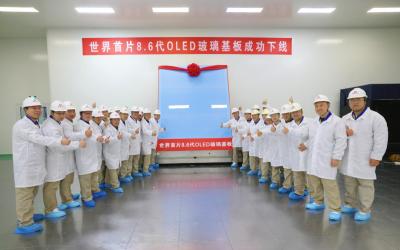How the Global Chip Shortage Will Impact Computer Companies This Holiday Season

Introduction:
The global chip shortage continues to disrupt industries worldwide, and as we approach the festive season, its effects on computer companies are becoming increasingly evident. For many businesses, the holiday season represents a significant revenue boost, but the ongoing semiconductor crisis threatens to create delays, shortages, and ultimately, consumer frustration. In this article, we’ll explore how the chip shortage will affect computer firms during the holiday season and what consumers and businesses can expect moving forward.
What’s Behind the Global Chip Shortage?
Before diving into the impacts on the computer industry, it’s essential to understand the root causes of the global chip shortage. Several factors have contributed to this crisis, including:
- Pandemic Disruptions: The COVID-19 pandemic initially slowed production as factories shut down, and supply chains became disrupted.
- Increased Demand: With more people working and learning from home, demand for electronic devices skyrocketed, placing additional strain on chip manufacturers.
- Geopolitical Issues: Trade tensions, particularly between the U.S. and China, have also exacerbated the shortage.
- Natural Disasters: Events such as fires and floods have further hindered production capacity.
These factors have led to a prolonged shortage, affecting multiple industries, including the computer sector.
The Impact on Computer Firms During the Holiday Season
For computer companies, the holiday season is a critical time. People are looking for the latest laptops, desktops, and accessories to gift or purchase for themselves. However, the chip shortage will likely cause several disruptions:
- Limited Product Availability
- Delayed Shipments: Due to the shortage of chips, computer manufacturers are experiencing production delays. As a result, consumers might face difficulties finding their desired models, especially for high-demand items like gaming PCs and premium laptops.
- Reduced Inventory: Many companies may have to scale back the number of units available for sale, which could lead to stockouts or long waiting times.
- Price Hikes
- Increased Costs: As supply becomes limited, prices for computer products are expected to rise. This could mean higher prices for both consumers and businesses, especially those that rely on bulk purchases for enterprise needs.
- Less Competitive Pricing: Smaller firms might struggle to offer competitive prices due to the rising costs of production and shipping, putting them at a disadvantage compared to larger corporations.
- Impact on Consumer Shopping Behavior
- Shift in Demand: Some consumers may shift their focus to more readily available products, such as refurbished computers or older models. Others might turn to alternative gift options if their first choice is unavailable, reducing overall demand for newer releases.
- Gift Delays: As holiday shoppers are often looking for quick deliveries, many might face frustration if their orders are delayed or back ordered due to the shortage.
- R&D and Innovation Delays
- Slower Technological Advancements: The ongoing chip shortage may also affect the rate of technological innovation. Companies may have to delay the release of new models and features as they struggle to secure the necessary chips to manufacture their products.
What Can Computer Companies Do?
To mitigate the effects of the chip shortage, computer firms are taking several steps, including:
- Diversifying Suppliers: Many companies are looking to establish relationships with alternative suppliers to secure more stable chip availability.
- Optimizing Production: Manufacturers are exploring ways to streamline production and prioritize high-demand products.
- Releasing Older Models: To meet customer demand, some firms may focus on releasing or re-releasing older models that do not rely on the latest chips.
How Can Consumers Navigate the Shortage?
For consumers, navigating the chip shortage can be challenging, but there are ways to secure a product without too much hassle:
- Plan Early: If you’re hoping to purchase a new computer for the holidays, plan. Start shopping early to avoid delays and stockouts.
- Be Flexible with Your Choices: Consider different models or refurbished options that might be more readily available.
- Look for Deals: Retailers might offer discounts on last-generation models, which are still highly functional.
Conclusion:
The global chip shortage is having a ripple effect across various industries, and computer companies are no exception. As we approach the festive season, both consumers and businesses will need to adapt to these challenges. While the shortage might lead to limited product availability, price increases, and delays, there are steps companies can take to mitigate the impact, and consumers can still find alternatives by shopping early and staying flexible with their choices. The key is to be aware of the situation and plan accordingly to avoid missing out on your desired holiday tech purchases.
Notes:
- Meta Description: Learn how the global chip shortage is affecting computer companies this holiday season and what it means for consumers, including delays, price hikes, and limited product availability.
- 10 Tags: Chip shortage, computer industry, holiday season, computer companies, product delays, price hikes, tech shortages, supply chain issues, consumer tips, holiday shopping.
- 5 Long-tail Tags: “Impact of global chip shortage on computer industry,” “How chip shortage affects holiday tech shopping,” “Chip shortage delays computer shipments,” “What to expect from computer companies this holiday season,” “Ways to cope with tech shortages during holidays.”
What do you think? Leave your comment below and I will do my best to get more research for you.




